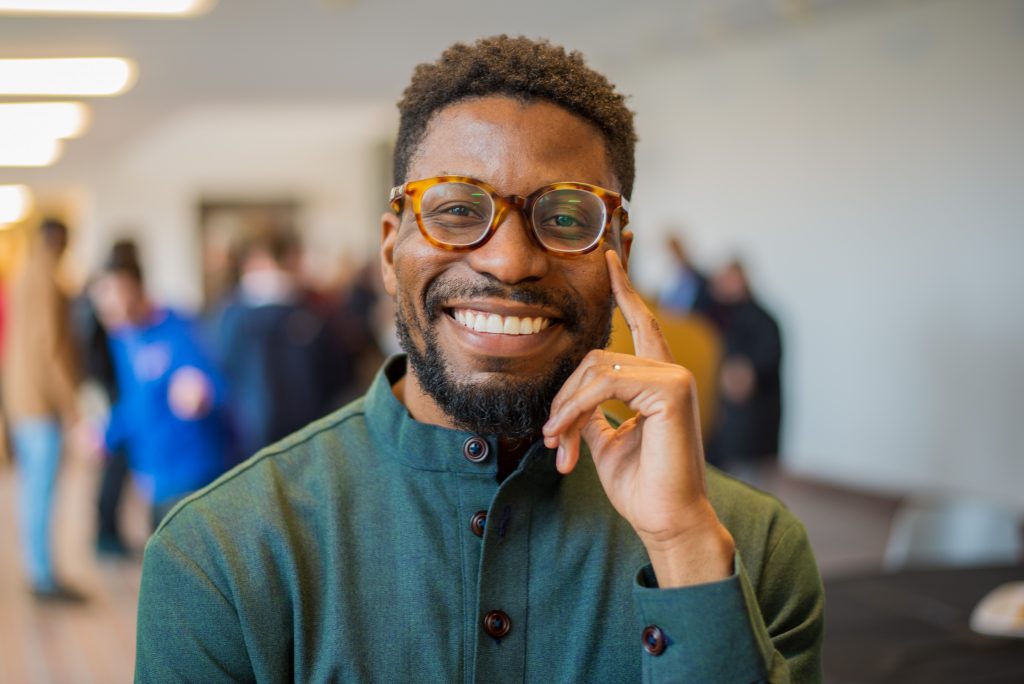Pipe Dream sat down to interview Daniel Adeyanju, ‘14 — a career coach, talent development expert and educator. Adeyanju, a Jamaican-born Nigerian American, majored in Africana studies at Binghamton University and also majored in computer science at CUNY Lehman College. He is also founding director of Kura Labs, a free training and job placement academy for students from underserved communities. This interview has been edited for length and clarity.
Pipe Dream: Can you just tell me a little bit about yourself and your background, and what you are doing currently?
Daniel Adeyanju: A lot of my identity comes from how I grew up, really — both my parents are pastors, as well as professionals. My mom is a doctor and my dad is an engineer by training, an electrical engineer. And when [they] moved from Nigeria to Jamaica and then had myself and my brother, my dad was also coming to the [United States] and learning about the world of technology that was emerging in building computers. So he’s learning how to build computers, he was teaching others how to build computers and he was also ministering in churches — and my mom was working as a medical doctor. So growing up, I always saw my parents as builders and givers, and that really influenced me growing up. My mom always told me that I used to help people with their homework before I finished mine. When we came to the [United States], we eventually started building a church in New York. And I was a big part of supporting that. So just kind of that mold of being a giver and a builder.
PD: How will your talk fit in with the theme “Welcome to Tomorrow?”
DA: So I’m a career nerd. As I will talk about in my talk, I’m just freakishly passionate about what people do in their careers — like I’m gonna ask you about what you’re gonna do next. And I’ll give you some [advice], whatever I can in whatever time we have. And that’s because I believe if people are spending their time doing the things that are optimal for them, exploring their passions and their proclivities, and they are doing what they’re good at, the world will be a better place. I believe that there are people doing jobs that don’t even require a human. They should be curing cancer.
PD: So implementing projects is all based on whether people want to put in the effort to do so?
DA: Exactly. So projects are key. And then in interviews you’re talking about things you’ve worked on. And the reason I say that is because we often talk about internships, which is great, or get involved on campus, which is such a general term, but folks are getting involved with things and they’re not necessarily creating anything. You want to have a portfolio and finished products. That’s huge, you’ll want to talk about that in an interview. You’ve done the work, you have a process, a story to tell. The last one is packaging, which kind of alludes to the story aspect. How do you tell a coherent story between, media, various media, your resume, cover letter, your LinkedIn, for example. Social media is huge. And you are messaging to folks, these [four] things — “Who am I? What do I do? Why do do it?” In addition, “How can you help me get there?” So you’re constantly messaging that when you’re using this media, when you’re in conversation, you have an elevator elevator pitch, you can say that in about 30 to 45 seconds, and you should be able to invite people to know who you are.
PD: You currently work at a lab that you helped create?
DA: We specifically prepare folks for jobs that have job titles, such as site reliability engineer and DevOps engineer. These jobs are concerned with making sure constant changes are made to the site. I don’t know if you know this, but there are people who are coding at any given time. There’s constant changes being made to Google, for example. And any of those changes can cause Google to break, or Netflix more importantly. And if Netflix were to go down, Netflix would lose a lot of money because we would probably unsubscribe because we can’t get to watch “Bridgerton” or something — I like “Bridgerton,” but that’s not important. So we train our [instructors] to ensure that we teach our students the skills necessary to keep those platforms up. They have to understand the infrastructure, things like Linux, a popular operating system for infrastructure, programming and then other software to automate. So it’s really interesting, because this role that I’m preparing folks for, it’s about automation. There are people who need to do these jobs, and these people actually have to be highly communicative.
PD: You just want to get them to achieve a sort of balance between the two?
DA: Yeah, but the most important thing is that they have to be relentless about solving problems and being problem solvers. They also need to have strong people skills. And they have to have that desire to learn, that insatiable desire to learn, constantly learning on the side. So they are always learning, they are always building those connecting dots, even within the systems, and they are drawing diagrams, trying to understand how things work. I would say another thing, too, is curiosity and all the things I’ve mentioned are just important skills in general life. I believe that the folks that we are training now are going to be the leaders of the future of technology, based on the skills that they’ve developed over the course of their lives, and also at Kura Labs.



